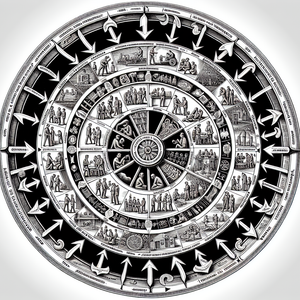Women in Defense: Breaking Barriers at General Dynamics

General Dynamics has made significant strides in promoting gender diversity within its workforce. Women now occupy key positions across various departments, from engineering and cybersecurity to project management and executive leadership. According to a report by the Defense Department, women make up about 16% of the defense workforce, but at General Dynamics, this number is steadily increasing due to targeted initiatives aimed at attracting and retaining female talent. One notable figure is Kathy Warden, the CEO of Northrop Grumman, who has inspired many women within the industry. Warden’s rise to CEO demonstrates that women can ascend to the highest echelons of leadership in defense. Her story is emblematic of the changing landscape and serves as a beacon of hope for aspiring female engineers and executives. The commitment to inclusivity and diversity is reflected in General Dynamics' strategic initiatives, such as partnerships with organizations that promote women's advancement in STEM (Science, Technology, Engineering, and Mathematics). These efforts are crucial in combatting the historical stereotypes that have often deterred women from entering the defense field.
Profiles of Female Innovators
To provide a deeper understanding of the experiences women are having at General Dynamics, we spoke with several female leaders who have made significant contributions to the organization and the industry. 1. Dr. Linda D. C. Hinton As the Chief Technology Officer, Dr. Hinton has been instrumental in guiding the technological direction of the company. Her work in artificial intelligence and machine learning has not only pushed the boundaries of what is possible in defense technology but has also encouraged younger women in STEM fields. “The key is to find your passion and pursue it relentlessly,” she advises. “There will be challenges, but perseverance is crucial.” Dr. Hinton's leadership and vision are pivotal in ensuring that General Dynamics remains at the forefront of technological innovation. 2. Maria Collins A project manager in cybersecurity, Maria leads a team focused on protecting critical infrastructure from cyber threats. Her journey into defense was fueled by a desire to make a difference in national security. “When I started, I often found myself as the only woman in the room, but I learned to use my voice and advocate for my ideas. It’s about building confidence and supporting one another,” she shares. Maria's work exemplifies the essential role women play in a field that is becoming increasingly significant in our digitally driven world. 3. Jennifer Brown As an engineer specializing in robotics, Jennifer has worked on several high-profile projects, including autonomous systems for military applications. Her path was not without obstacles; she faced skepticism early in her career but turned it into motivation. “I realized that my unique perspective as a woman can lead to innovative solutions,” she states, emphasizing the importance of diversity in problem-solving. Jennifer's contributions not only enhance the effectiveness of defense technologies but also inspire future generations of women in engineering.
Creating a Supportive Environment
General Dynamics has implemented various programs aimed at fostering an inclusive workplace. Initiatives like mentorship programs, networking events, and employee resource groups specifically for women are designed to provide support and encouragement. The company recognizes that creating a culture of inclusivity is not just a moral imperative but a strategic advantage that drives innovation and performance. Furthermore, General Dynamics has engaged in outreach activities aimed at young women, encouraging them to consider careers in defense and technology. By collaborating with educational institutions and participating in career fairs, the company is actively working to reshape perceptions about women's roles in the industry.
The increasing presence of women in the defense sector, particularly at General Dynamics, marks a significant evolution in an industry traditionally dominated by men. The stories of leaders like Dr. Hinton, Maria, and Jennifer illuminate the challenges faced and the triumphs achieved by women in defense. As these trailblazers continue to break barriers and inspire the next generation, they are not only reshaping the workforce but also enhancing the industry's ability to address complex security challenges. The future of defense technology is not only in the hands of engineers and strategists but also in the diverse perspectives and innovative approaches that women bring to the table. As the industry continues to evolve, the contributions of women will undoubtedly play a pivotal role in shaping a more secure and technologically advanced world. General Dynamics stands as a testament to this transformative journey, proving that when diversity is embraced, innovation flourishes. The path forward is promising, and the defense sector is poised to benefit immensely from the talents and insights of women leading the charge.
Cybersecurity Project Manager
General Dynamics, Lockheed Martin, Northrop Grumman
Core Responsibilities
Lead cross-functional teams to safeguard critical infrastructure against cyber threats.
Develop and implement cybersecurity strategies, policies, and incident response plans.
Collaborate with stakeholders to identify vulnerabilities and recommend improvements.
Required Skills
Strong understanding of network security protocols and tools (e.g., firewalls, intrusion detection systems).
Excellent leadership and communication skills to effectively manage diverse teams.
Relevant certifications (e.g., CISSP, PMP) are often preferred.
Robotics Engineer
General Dynamics, Raytheon Technologies, Boston Dynamics
Core Responsibilities
Design, develop, and test robotic systems for military applications, including autonomous vehicles.
Collaborate with software engineers to integrate AI and machine learning capabilities into robotic systems.
Conduct field tests and analyze performance data to refine designs.
Required Skills
Proficiency in programming languages such as C++, Python, or ROS (Robot Operating System).
Strong problem-solving skills and a creative approach to engineering challenges.
A degree in robotics, mechanical engineering, or a related field is typically required.
Artificial Intelligence Research Scientist
General Dynamics, BAE Systems, MITRE Corporation
Core Responsibilities
Conduct research to develop AI algorithms that enhance defense systems and decision-making processes.
Collaborate with engineers and analysts to apply AI solutions to real-world defense challenges.
Publish findings in scientific journals and present at industry conferences.
Required Skills
Expertise in machine learning frameworks (e.g., TensorFlow, PyTorch) and statistical modeling.
Strong analytical skills with a background in mathematics or computer science.
Advanced degrees (PhD or Master’s) in AI, computer science, or a related field are often required.
Defense Technology Policy Analyst
General Dynamics, RAND Corporation, Center for Strategic and International Studies
Core Responsibilities
Analyze and assess defense policies and their impact on military technology development.
Prepare reports and recommendations for senior leadership to influence strategic decisions.
Monitor and evaluate emerging technologies and their implications for national security.
Required Skills
Strong research and analytical skills, with a deep understanding of defense policies and regulations.
Excellent written and verbal communication skills for effective reporting and presentations.
A background in political science, international relations, or defense studies is often preferred.
STEM Outreach Coordinator
General Dynamics, non-profit organizations focused on STEM education, government agencies
Core Responsibilities
Develop and implement programs that encourage young women to pursue careers in STEM fields, particularly in defense.
Organize and lead workshops, career fairs, and mentorship programs in collaboration with educational institutions.
Measure and report on the effectiveness of outreach initiatives to improve future programs.
Required Skills
Strong communication and interpersonal skills to engage with students, educators, and industry professionals.
Experience in program development or project management is valuable.
A background in education, communications, or a STEM discipline is advantageous.


